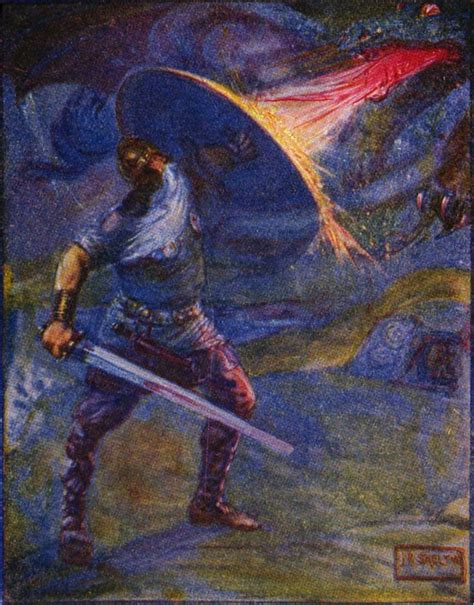Beowulf: A Reflection of Modern Society
Epic poems, though born from ancient cultures, often resonate with surprisingly modern themes. Beowulf, the Old English epic poem detailing the heroic exploits of the titular warrior, is no exception. While separated from us by centuries, its exploration of societal structures, leadership, and the human condition offers a potent reflection on the anxieties and challenges of modern society. This analysis will delve into how Beowulf's narrative mirrors aspects of our contemporary world, revealing enduring truths about human nature and the complexities of power.
What Makes Beowulf Relevant Today?
The relevance of Beowulf to modern society isn't merely a matter of finding superficial parallels. It's about recognizing the enduring human struggles that the poem depicts. These struggles transcend historical context and resonate deeply with our own experiences. The poem explores themes of:
-
Leadership and Responsibility: Beowulf's leadership is tested repeatedly. He confronts not just physical monsters but also societal expectations and the burden of responsibility. This resonates with the challenges faced by modern leaders in navigating complex situations, balancing competing interests, and making difficult decisions with far-reaching consequences.
-
Good vs. Evil: The classic battle between good and evil, embodied in Beowulf's fight against Grendel, Grendel's mother, and the dragon, is a timeless narrative. This conflict mirrors our own struggles against injustice, corruption, and the darker aspects of human nature. The poem doesn't offer simplistic answers, however, forcing us to consider the nuances of morality.
-
The Nature of Fame and Legacy: Beowulf's actions are driven, in part, by a desire for fame and a longing to leave a lasting legacy. This aspiration, while admirable, also reveals the potential pitfalls of ambition. Modern society, with its emphasis on achievement and recognition, finds a parallel in Beowulf's quest for glory. The poem compels us to reflect on the true measure of a fulfilling life beyond mere accomplishments.
-
Community and Society: The poem portrays a highly structured society with clear hierarchies and roles. While vastly different from modern structures, the fundamental need for community and social cohesion remains the same. Beowulf's actions are always in the context of his relationship with his people, highlighting the importance of collective responsibility and shared fate.
How Does Beowulf's World Mirror Ours?
H2: The Dangers of unchecked Power and Hubris
Beowulf, despite his heroic qualities, displays hubris. His arrogance almost leads to his downfall in the final battle with the dragon. This mirrors the dangers of unchecked power in modern society, where leaders can become detached from their people and prioritize self-preservation over the common good.
H2: The Importance of Collective Action Against Threats
Beowulf's victories are not solely individual achievements. He relies on the support and cooperation of his community. This speaks to the necessity of collective action in confronting modern challenges, whether they are environmental threats, economic crises, or social injustices.
H2: The Search for Meaning and Purpose in a Challenging World
The poem explores the existential anxieties that plague both Beowulf and his people. Their struggles with fear, death, and uncertainty mirror our own grappling with similar questions in the modern world. Beowulf's quest can be seen as a metaphor for humanity's ongoing search for meaning and purpose.
H2: The Ethical Dilemmas of Leadership
Beowulf's decisions are not always easy or morally straightforward. He faces dilemmas that require difficult choices, highlighting the complex ethical considerations faced by leaders in any society. The poem forces us to grapple with the ambiguities of morality and the consequences of leadership decisions.
Conclusion: A Timeless Tale for Modern Times
Beowulf, though set in a distant past, offers a compelling mirror to modern society. Its exploration of leadership, community, good versus evil, and the search for meaning remains strikingly relevant. By examining Beowulf's journey and its complexities, we gain a deeper understanding of the enduring human challenges that continue to shape our world. The poem's power lies not only in its thrilling narrative but also in its timeless reflection on the human condition. It invites us to contemplate our own societies, our own leaders, and our own search for meaning in a world that often feels as fraught with peril as the one Beowulf inhabited.

